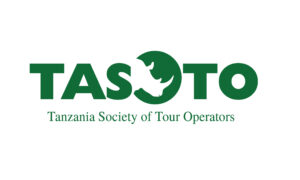Travel Information
At Noble Adventure Tanzania DMC, we embrace the spirit of togetherness for all our clients upon arrival. We will assign the best guides to each group as their respective team leaders. Clients are strongly advised to liaise with our guides, as they will serve as your key points of contact throughout your journey. Our CEO/MD will oversee all activities, and clients are encouraged to reach out directly via mobile/WhatsApp at +255764600426 or email at md@nobleadventuretz.com in case of any urgent matters or emergencies.
For your safety and security, we have established the following guidelines:
- Accompanied Travel: Clients are not permitted to walk independently without being accompanied by our designated guide. This policy is in place to ensure your safety.
- Cash Handling: We advise against carrying and using large amounts of cash. Instead, we provide a secure safe-keeping room for clients to register and store their cash, which must be known to either the Finance Manager or the MD for security purposes.
- Valuables Management: Clients should avoid carrying excessive valuables. Any valuable items should be registered with our office for safe-keeping.
All our international clients are required to carry a valid passport along with an entry or re-entry Tourist Visa upon arrival in Tanzania. This visa can be obtained either at the entry point or from any Tanzanian Diplomatic Mission or Consulate in their respective countries.
For visitors coming from within the United Republic of Tanzania, a passport is not required. Instead, they may present their National ID. The same applies to Yellow Fever Vaccination Certificates; visitors traveling from Yellow Fever-endemic countries must present their certificates to gain entry. We also advise all visitors to take anti-malaria tablets and utilize mosquito nets and insect sprays where available.
Additionally, we strongly recommend obtaining comprehensive travel and medical insurance prior to your trip. In case of a medical emergency, we utilize AMREF Flying Doctors for medical evacuation. As a member of AMREF, we can assure our clients of minimal travel insurance costs for medical coverage.
Visitors coming to Tanzania have the option to land at one of three major airports within the United Republic of Tanzania: Kilimanjaro International Airport (JRO) in Kilimanjaro, Zanzibar International Airport in Zanzibar, or Julius Nyerere International Airport (DAR) in Dar es Salaam. Additionally, clients are not restricted to entering Tanzania alone; they may also choose to arrive in Kenya at Jomo Kenyatta International Airport (JKIA).
We take responsibility for arranging airport transfers as agreed upon during the booking and travel planning process, and these arrangements will be incorporated into your itinerary. For cost-effectiveness, we recommend choosing Kilimanjaro International Airport (JRO) as the preferred destination for pickup.
The national language of Tanzania is Swahili, which is widely spoken throughout the country. In addition, English serves as the international language of business and is commonly used by many people across various sectors.
At Noble Adventure Tanzania DMC, we have employed guides, drivers, and staff who are fluent in multiple languages, including English, French, Chinese, Italian, German, Spanish, Japanese, and many others. This diverse linguistic capability ensures effective communication and enhances your travel experience, allowing us to cater to the needs of our international clients.
The official currency of Tanzania is the Tanzanian Shilling, abbreviated as T.Shs. or TZS. For security reasons, we advise our clients not to carry large amounts of foreign currency in cash. Instead, you can conveniently access cash using local ATMs with your debit or credit cards.
If you do need to convert cash, foreign currencies such as USD, GBP, or EUR can be easily exchanged for Tanzanian Shillings (TZS) at commercial banks or authorized forex dealers, which are available from the entry points to the city streets, as guided by our staff.
We also discourage clients from carrying Traveler’s Checks (TC), as they are no longer widely accepted in Tanzania. Thank you for your understanding, and we look forward to assisting you during your visit!
Tanzania operates on East Africa Time (EAT), which is 3 hours ahead of Greenwich Mean Time (GMT+3). There are no daylight saving time changes in the country.
The electrical system in Tanzania uses 220 volts, so if your computer or appliance is not dual voltage or specifically designed for 220 volts, you will need a voltage converter or transformer. The frequency is 50 Hz.
Due to potential power outages, we recommend bringing a universal adapter, as well as a flashlight or headlamp for convenience. For appliances from the US, a voltage converter and plug adapter will be necessary. Additionally, having a power bank can be very useful, especially in lodges and camps while on safari.
We kindly remind you to always ask for permission before taking photographs with indigenous people. Their consent is both vital and important, as it shows respect for their culture and privacy.
We would like to remind all our visitors that carrying wildlife products and parts (government trophies) without the proper permit from the Tanzania Wildlife Division is strictly illegal. Those who wish to import or export such items must follow the appropriate regulatory channels in compliance with the laws of the United Republic of Tanzania.
Additionally, we prohibit our visitors from bringing trophies from other countries while traveling to Tanzania for safaris and holidays. Any violation of this policy will be considered a serious breach of the country’s regulations. We will not be held liable for any misconduct that may arise from a lack of awareness of the law; such actions will be treated as criminal offenses.
The Corporate Communication Department of the Tanzania National Parks (TANAPA) issued a press release on November 6, 2014, titled Prohibition of the Use of Drones and Unmanned Aerial Vehicles. This announcement serves as a reminder to the general public that the use of drones or unmanned aerial vehicles (UAVs) of any size for photography, filming, or any other purpose is strictly prohibited in national parks and game reserves for security reasons.
The press release emphasized that, if necessary, the use of these technologies will only be permitted under special circumstances, and permits will be issued solely by the Director General of Tanzania National Parks (TANAPA). Consequently, all tour operators are required to inform their clients and assist in complying with this public notice. This policy also applies to all visitors intending to film in the parks.
We kindly ask the general public, as well as our valued clients and visitors, to adhere to this notice in support of conservation efforts in Tanzania. Thank you for your cooperation in helping to protect our natural heritage.
When preparing for your safari, we recommend traveling with light bags and suitcases to avoid unnecessary inconveniences related to space. Our safari vehicles and even some local aircraft have limited luggage capacity, and not all items may be able to be taken on board.
Tanzania experiences various seasons and weather changes throughout the year, so it’s essential to pack appropriately. For example, clothing suitable for a March safari may not be ideal in November. From March to June, the weather can be quite cool and rainy, making warm clothing essential. We suggest packing both thick and lightweight jackets, along with a few sweaters, gloves, and socks.
The coastal areas tend to be hot, so plan to bring lightweight attire such as T-shirts, shorts, swimsuits, and cargo pants. Neutral-colored materials are preferable, as they blend well with the surroundings. Between October and February, temperatures can rise to around 30 degrees Celsius, necessitating light, breathable clothing.
Visitors to Zanzibar should dress modestly, avoiding swimwear, miniskirts, and revealing clothing outside of hotels, beaches, and resorts.
When it comes to packing, consider limiting your luggage to about 20 kg. A good packing list includes:
– 3 short-sleeved safari shirts
– 3 long-sleeved safari shirts
– 2 pairs of shorts
– 3 pairs of trousers
Given the tropical climate, we also strongly advise carrying insect repellent to ensure a comfortable experience.
By keeping these tips in mind, you’ll be well-prepared for an enjoyable safari adventure!
You can now conveniently apply for an online visa to visit the United Republic of Tanzania, including both the mainland and Zanzibar. To get started, simply fill out the online form make your payment, and submit your application.
Applicants will receive notifications via email regarding the status of their applications, whether accepted or rejected, along with the reasons for any rejections. You can also easily track your application status through the online system.
Before applying, we strongly advise all applicants to read and understand the guidelines for visa applications.
Alternatively, the staff at Noble Adventure Tanzania DMC can assist you with your visa application for a separate fee, as required by the responsible officials.
















